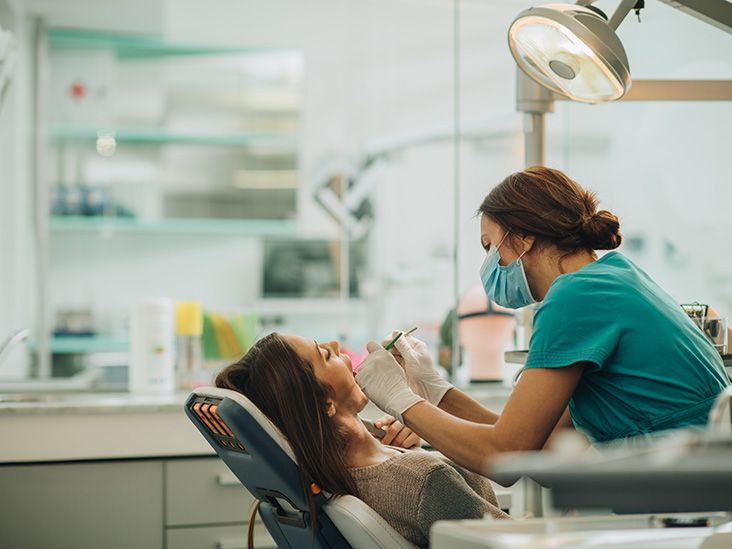Porcelain Veneers Washington DC: Your Path to a More Vibrant Smile
Porcelain Veneers Washington DC: Your Path to a More Vibrant Smile
Blog Article
Usual Inquiries Concerning Dental Veneers Answered
Dental veneers have become a progressively popular alternative for those looking to improve their smiles, yet several individuals stay uncertain regarding numerous elements of their usage. As we explore these typical queries, it comes to be vital to take into consideration not only the advantages but likewise the implications of deciding for oral veneers in pursuit of a much more certain appearance.
What Are Dental Veneers?
Oral veneers are thin, tailor-made shells crafted from porcelain or composite resin that are designed to cover the front surface area of teeth. These dental prosthetics serve both practical and visual objectives, giving a service for different oral blemishes, including discoloration, chips, gaps, and imbalance. By sticking to the teeth, veneers can substantially boost the general appearance of a smile, producing a more eye-catching and uniform look.
Porcelain veneers are especially favored for their natural translucency and tarnish resistance, making them an ideal option for people seeking lasting outcomes. On the other hand, composite resin veneers are typically more economical and can be used in a solitary visit, however they may not use the same longevity as porcelain options.
The decision to choose dental veneers commonly comes from a need for visual renovation, however clients ought to also think about aspects such as the durability of the product, upkeep needs, and the potential demand for tooth decrease (Low Cost Veneers). Inevitably, oral veneers stand for a effective and functional service for accomplishing a glowing smile, satisfying specific aesthetic demands while advertising confidence and self-confidence
Exactly How Are Veneers Applied?
The application process for veneers calls for cautious planning and accuracy to make certain ideal results. The procedure generally begins with a thorough appointment, where the dentist reviews the individual's dental wellness, talks about desired outcomes, and determines the appropriate type of veneers, whether porcelain or composite material.
When the therapy strategy is developed, the dental practitioner prepares the teeth by eliminating a slim layer of enamel, usually concerning 0.5 mm to 1 mm, to suit the veneer. This step is important as it ensures a correct fit and protects against the veneers from showing up bulky - Low Cost Veneers. After prep work, impacts of the teeth are required to create custom veneers that match the person's distinct dental structure and visual choices
While the irreversible veneers are being fabricated in an oral laboratory, momentary veneers might be placed to protect the ready teeth. Once the permanent veneers are all set, the dental practitioner will very carefully bond them to the teeth using a solid dental adhesive.
What Are the Benefits?

In addition, veneers are known for their toughness and resistance to staining compared to all-natural teeth. Made from high-grade products such as porcelain or composite material, they can preserve their look for many years with correct care. This long life makes them a useful financial investment in one's oral look.
Along with aesthetic enhancements, veneers can additionally add to improved oral health and wellness. By covering harmed or deteriorated teeth, they can give additional support and security, image source assisting to avoid more degeneration or deterioration. This protective element can minimize the demand for extra comprehensive dental procedures in the future.

How Much Time Do They Last?
With proper treatment and maintenance, oral veneers can last anywhere from 10 to 15 years, making them a durable solution for enhancing one's smile. The long life of veneers greatly depends upon the product utilized, the top quality of the first positioning, and the client's adherence to oral health methods.
Porcelain veneers are understood for their resilience and resistance to discoloration, usually lasting closer to the 15-year mark when taken care of suitably. Composite veneers, while more inexpensive, might need substitute faster, often within 5 to ten years due to their susceptibility to use and staining.
:max_bytes(150000):strip_icc()/HowMuchDoesDentalWorkCostWithoutInsurance-46a157f20bd442cab4544b18577120ab.jpg)
In addition, using a mouthguard during sporting activities or nighttime can give added security. Ultimately, while veneers use a substantial aesthetic improvement, their long life is dramatically influenced by the dedication to appropriate dental treatment and normal consultations with an oral expert.
Are There Any Kind Of Risks?
Considering the transformative effects of oral veneers, it is necessary to recognize the possible threats associated with their application. While veneers can enhance the appearance of teeth, the treatment includes the elimination of a thin layer of enamel, which can increase tooth sensitivity and susceptability to a fantastic read degeneration.
One considerable threat is the possibility of improper positioning or suitable, causing discomfort, bite misalignment, and even damage to the underlying tooth framework. Additionally, if the veneers are not kept effectively, they can come to be blemished or chipped over time, requiring substitute.
People may likewise experience allergic reactions to the materials used in the veneers, particularly if they have level of sensitivities to certain dental composites. While veneers are sturdy, they are not undestroyable; extreme pressure from clinching or grinding can lead to cracks.
It is essential for people to consult with a certified oral professional to evaluate their specific dangers and to comply with aftercare guidelines diligently. By understanding these dangers, clients can make enlightened decisions regarding their oral veneer therapy and ensure the long life and success of their improvements.
Conclusion
In summary, dental veneers represent a beneficial cosmetic option for enhancing smiles, with factors to consider regarding their application, advantages, durability, and linked dangers. Their effectiveness is affected by factors such as the selection of material, with porcelain offering remarkable durability compared to composite alternatives. Proper treatment and maintenance are necessary to take full advantage of the life expectancy of veneers. Ultimately, notified decision-making regarding dental veneers can bring about adequate aesthetic results and boosted dental health and wellness.
Oral veneers are thin, custom-made coverings crafted from porcelain or composite resin that are developed to cover the front surface area of teeth. After prep work, impressions of the teeth are taken to create custom-made veneers that match the individual's distinct dental framework and aesthetic preferences.
While the permanent veneers are being fabricated in an oral lab, short-lived veneers might be put to protect the prepared teeth. Once the long-term veneers are prepared, the dentist will carefully bond them to the teeth utilizing a solid dental adhesive. Ultimately, educated decision-making regarding dental veneers can lead to sufficient aesthetic results and improved oral wellness.
Report this page